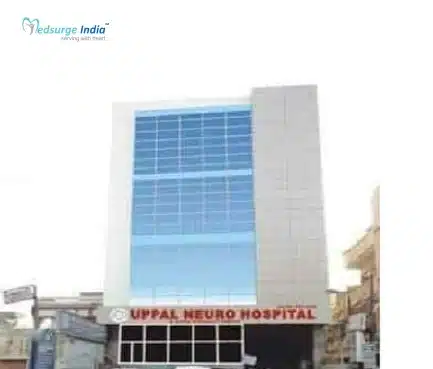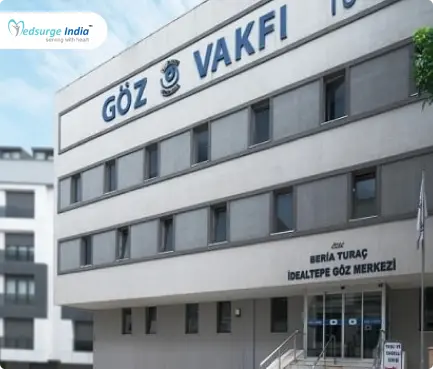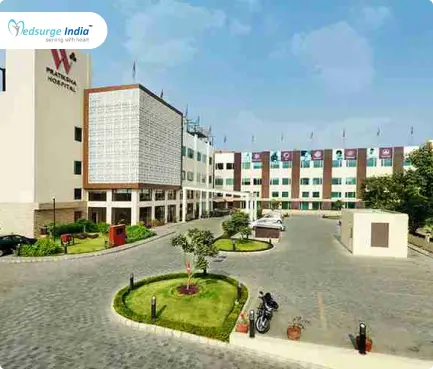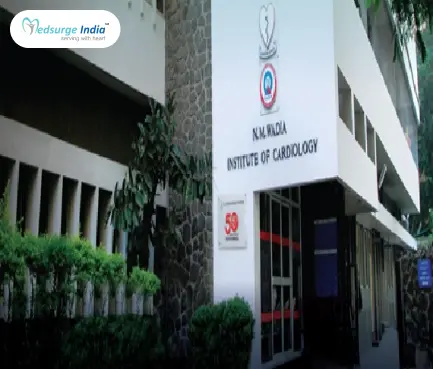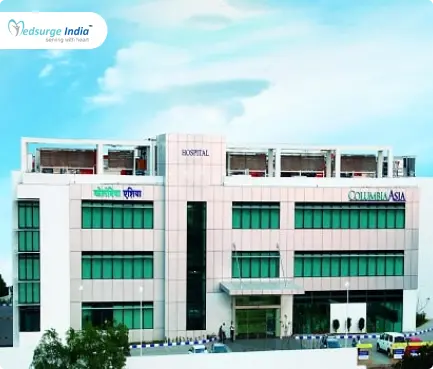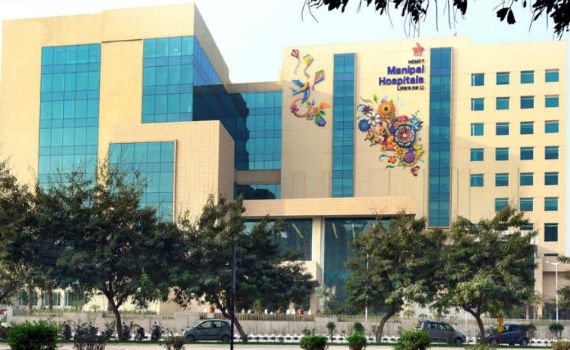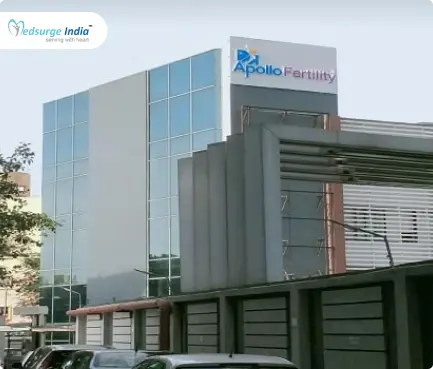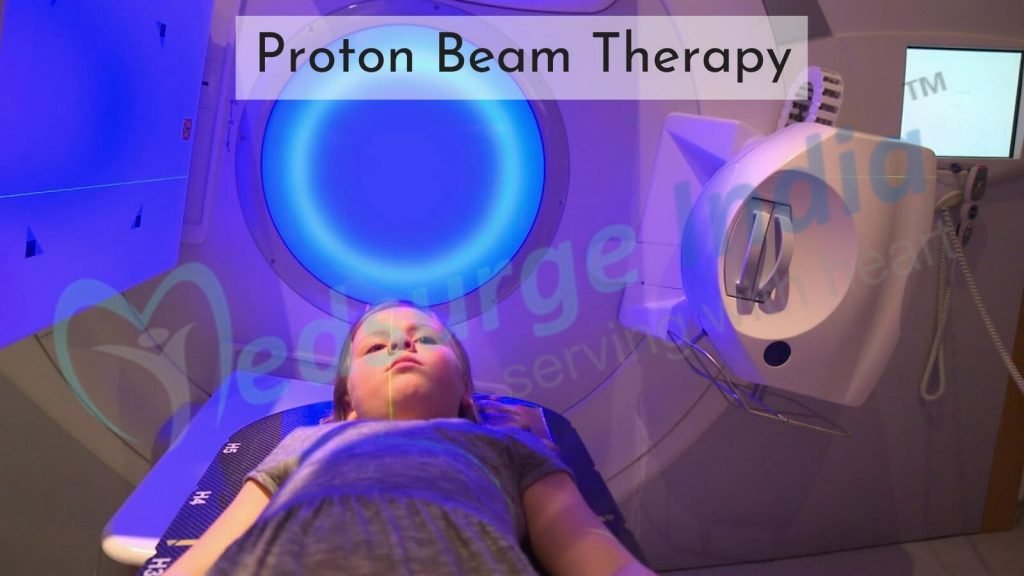
Proton therapy is a type of radiation therapy that is also known as proton beam therapy. It treats cancer using protons rather than x-rays. A positively charged particle is referred to as a proton. Protons have tremendous energy and can destroy cancer cells. Proton Beam therapy in India can be used by doctors on its own. They may also use it in conjunction with x-ray radiation, surgery, chemotherapy, and/or immunotherapy.
Proton treatment, like x-ray radiation, is a form of external-beam radiation therapy. It uses a machine outside the body to administer radiation through the skin in a painless manner.
Proton therapy has shown potential in the treatment of many cancers. Because doctors can better control where proton beams transmit their energy, studies have suggested that proton therapy may produce fewer side effects than standard radiation. However, because there have been few studies comparing proton and X-ray radiation, it’s unclear whether proton treatment is more effective at extending life.
What Is Proton Beam Therapy
Proton therapy is a type of sophisticated radiation therapy that targets cancer cells and kills them. Instead of using x-rays, protons are utilized. Doctors direct cancer-fighting radiation to precise spots throughout the body as part of the treatment, also termed proton beam therapy.
Proton therapy in India is most widely used to treat head and neck cancer, as well as pediatric cancers. It’s increasingly being used to treat spinal tumors, breast cancer, sarcoma, brain tumors, and prostate cancer, according to doctors.
Cancer and some noncancerous tumors are treated using proton therapy. Proton therapy may be the only option for treating your disease. It could also be used in combination with other treatments including surgery and chemotherapy.
Proton Beam Therapy for cancer is employed or may be used if the cancer persists or returns after normal X-ray radiation.
Proton Beam Therapy Cost in India
Proton beam therapy cost in India starts from INR 50,00,000 (60,000 USD). The most common uses of proton therapy are for the treatment of pediatric and head and neck malignancies, treating spine tumors, prostate cancer, sarcoma, brain tumors, and breast cancer with it more frequently. Furthermore, In the long run, proton beam therapy has the ability to further enhance the quality of life for children with brain tumors. Teenagers and young adults can use proton treatment to lower their chance of developing a second cancer.
Furthermore, proton beam therapy cost in India may differ based on a number of variables, including the type of therapy, the method employed, the hospital and location of choice, the doctor’s qualifications, and more. This is the main reason that thousands of individuals from over the globe select India as their destination for medical care.
Proton Beam Therapy in India Is Often Used to Treat the Following Conditions:
- Brain tumors
- Breast cancer
- Cancer in children
- Eye melanoma
- Esophageal cancer
- Head and neck cancers
- Liver cancer
- Lung cancer
- Lymphoma
- Pancreatic cancer
- Pituitary gland tumors
- Prostate cancer
- Sarcoma
- Tumors affecting the spine
- Tumors in the base of the skull
Risk and Benefits
Proton therapy has various advantages over x-ray radiation therapy:
- Up to 60% less radiation can be supplied to healthy tissues around the tumor in most cases. The danger of radiation damage to these tissues is reduced as a result.
- It may make it possible to give the tumor a larger radiation dose. This raises the likelihood of the proton therapy destroying all of the tumor cells targeted.
- During and after therapy, it may cause fewer and milder side effects such as low blood counts, exhaustion, and nausea.
However, there are certain disadvantages to proton therapy:
- Proton Beam Therapy in India treatment is only provided at a few medical centers since it requires highly specialized and expensive equipment.
- It could be more expensive than x-ray radiation therapy. Which malignancies are covered by insurance and how much a person must pay varies by the provider? To learn more, contact your insurance provider.
- Proton therapy cannot be used to treat all malignancies.
Get Free Cost Estimation
Procedure
How Does Proton Therapy Work
- Proton radiations, like other types of external beam therapy, need the participation of a treatment team that comprises a radiation oncologist, physicist, dosimetrist, radiation therapist, and nurse in proton beam therapy facilities.
- A physician with specialized training in radiation oncology evaluates the patient and chooses the optimal course of action, radiation site, and radiation dosage.
- In order to provide the required dosage in the most efficient way possible, the radiation oncologist, radiation physicist, dosimetrist, and radiation therapist work together. A diagnostic radiologist is also essential in the delivery of this medication, as is imaging examinations.
- To ensure that treatment is provided accurately, the radiation physicist and dosimetrist do extensive treatment calculations. Highly skilled technologists known as radiation therapists deliver radiation treatments on a regular basis.
- Radiation therapy nurses are part of your treatment team who deal with your day-to-day problems and assist you to manage the treatment’s side effects.
Working:
- Protons are accelerated in a synchrotron or cyclotron machine. Protons move quickly and produce a lot of energy. This energy drives the protons to the necessary depth in the body. The targeted radiation dosage is subsequently given to the tumor by the protons.
- There is less radiation dose outside of the tumor with proton therapy. X-rays continue to provide radiation doses after they depart a person’s body in traditional radiation therapy.
- This means that radiation potentially causes harm by destroying nearby healthy tissues.
How Will the Patient Feel Both During and After the Procedure
- You shouldn’t feel any pain or discomfort during the procedure. Following radiation therapy, there can be some side effects that your radiation oncologist will manage in the same manner as any other radiation treatment.
- The amount of the dosage and if you are simultaneously taking chemotherapy are two more variables that may have an impact on how you feel after treatment.
- Fatigue is a frequent side effect, particularly when a large region is being treated, along with temporary hair loss and skin responses in the radiation’s direct path.
- Radiation treatment may result in adverse consequences. These problems could develop as a result of the therapy or as a result of radiation harm to healthy cells nearby.
- Depending on the radiation type utilized, the amount administered, and the body area being treated, the frequency and severity of side effects will change. Tell your doctor and/or nurse so they can help you manage your symptoms.
- Radiation can have both delayed and immediate side effects. Early side effects happen during or right away after therapy. Usually, they disappear after a few weeks. Two typical early negative effects are fatigue and skin issues.
- Sensitive, red, itchy, or puffy skin may develop in the treatment region. Dryness, itching, peeling, and blistering are some of the other alterations.
Other early side effects, depending on the location being treated, may include:
- In the treatment area, there is a loss of hair.
- Problems with the mouth and swallowing, as well as eating and digestive issues
- constipation, nausea, and vomiting headaches
- In the treatment area, there is a lot of pain and edema.
- Changes in the urine and bladder systems
Side effects can appear months or years after treatment. They are rare, despite the fact that they are frequently permanent. They are as follows:
- Changes in the brain
- Changes in the spinal cord
- alterations in the lungs
- Abnormalities in the kidneys
- Changes in the colon and rectal area
- joint changes
- Infertility
- mouth changes due to lymphedema
- malignancy that has spread from the primary cancer
Radiation therapy carries a small risk of cancer development. Following treatment, your radiation oncologist will check for problems and recurrent or new cancers on a regular basis.
Proton Beam therapy in India has a reduced chance of acquiring cancer than traditional x-ray (photon) treatment.
Radiation oncologists can use modern procedures like proton treatment to maximize radiation cancer-killing potential while limiting its negative effects.
What Is the Cost of Proton Therapy in India?
Proton beam therapy cost in India is more affordable as compared with other countries. Moreover, the medical treatment and services offered are comparable to those provided by some of the world’s most reputable hospitals. Even after factoring in costs for lodging, meals, and transportation, proton beam therapy in India starts from USD 60,000.
Furthermore, proton beam therapy cost in India may differ based on a number of variables, including the type of therapy, the method employed, the hospital and location of choice, the doctor’s qualifications, and more. This is the main reason that thousands of individuals from over the globe select India as their destination for medical care.
Best Cancer Treatment Hospital in India
- Fortis Hospital Gurgaon
- Manipal Hospital Dwarka, Delhi
- Indraprastha Apollo Hospital New Delhi
- Amrita Hospital, Faridabad
- HCG Cancer Centre, Bangalore
How to Choose a Hospital for Proton Beam Therapy in India
Facilities for proton radiation therapy in India have a reputation for being welcoming and patient-focused. You can find one of the best proton therapy hospitals in India and these hospitals, consists of the best doctors in India who are experts in their professions. For an overseas patient, selecting a good hospital for treatment might be challenging. It is crucial to know proton beam therapy cost in India while keeping
- Quality certificates and accreditations
- Hospital and transportation facility location
- Team of doctors and surgeons
- Advanced diagnostic and therapeutic equipment
- International patient assistance
How Can Medsurge India Help?
Medsurge India is a prestigious support system for patients looking for doctors, hospitals, and specialized treatments. We’ll find the most suitable medical options for you. Regarding your medical issues, our team will give you a list of certified, reputable, and trusted doctors and hospitals. Additionally, we offer a treatment strategy that fits your budget. Apart, we assist patients with obtaining travel authorizations, medical visas, and a multitude of other things.
The Most Important Frequently Asked Questions
Q: How Long Do the Side Effects of Proton Therapy Last?
A: For individuals with head and neck cancer, side effects from proton therapy may last for two to three weeks after treatment. Maintain the oral, pharyngeal, and skincare regimens recommended by your healthcare provider, as well as a healthy diet.
Q: What Is the Success Rate of Proton Beam Therapy?
A: After three years, 46% of proton treatment patients and 49% of standard radiation therapy patients were cancer-free. After three years, 56% of individuals who underwent proton therapy and 58% of those who received conventional radiation were still alive.
Q: How Long Is Proton Therapy Recovery?
A: After a proton treatment session, most people resume their normal activities right afterward. Within 2-8 weeks, many people report seeing results from this therapy. The tumor’s response to proton therapy relies on the type of cancer you have and its location within your body.
Q: What Are the Disadvantages of Proton Beam Therapy?
A: The following are some of the most common side effects of proton therapy: Fatigue. In the treated area of the body, hair loss occurs. Skin that is reddened around the area of the body that is being treated.
Q: Is Proton Beam Therapy Painful?
A: Proton therapy does not cause pain, though positioning may cause discomfort in some patients with physical limitations. It simply takes a few minutes for the proton beams to be treated and delivered.
Top Hospitals for Proton Beam Therapy in India
Top Doctors for Nuclear Medicine Therapy
Dr. Pankaj Dougall
Director
Experience: 35 Years
Max Super Speciality Hospital, Saket, New Delhi
New Delhi, India
Dr. Ishita B. Sen
Director
Experience: 22 years of experience
Fortis Memorial Research Institute, Gurgaon
Gurgaon, India
Dr. Vineet Pant
MBBS, DNB, FEBNM, Fellow Theranostics
Experience:
Fortis Memorial Research Institute, Gurgaon
Gurgaon, India
Dr. Dharmender Malik
DNB, MNAMS, FANMB
Experience:
Fortis Memorial Research Institute, Gurgaon
Gurgaon, India
Dr. Promila Pankaj
Consultant
Experience: 25 Years
Max Superspeciality Hospital, Shalimar Bagh, New Delhi
New Delhi, India
Dr. Parul Thakral
Ph.D, M.Sc., Clinical Research Officer
Experience:
Fortis Memorial Research Institute, Gurgaon
Gurgaon, India
Dr. Subha Shankar Das
MBBS, DNB, Senior Resident
Experience: 9 years of experience
Fortis Memorial Research Institute, Gurgaon
Gurgaon, India


